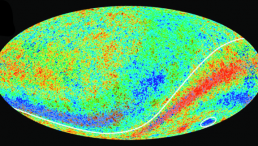technology
Google Glass Turns to Intel for Second Generation—Bye Bye TI
Cyber Monday Deals May Soon Include Girl Scouts Cookies
Can U.S. Supercomputers Regain Top Title?
China’s Supercomputer Tianhe-2 Reigns Supreme
Could A Techni-Particle Save Us from the Universe’s Undoing?
‘G2’ Gas Ball Survives Black Hole, and Researchers Say They Now Know Why
The Past And Present of Biotechnology—What Designs Nature Will Inspire
Google’s Magic Pill Will Search Out Cancer—Or Is It the Nanoparticles?
Apple Launches Apple Pay Facility—Making Purchases has Never Been this Easy
Technology for the Blind: New Finger Device Reads to Visually Impaired People in Real Time
Most Popular
![Apple Is Developing Homegrown Chips to Run AI Tools in Data Centers [Report]](https://1721181113.rsc.cdn77.org/data/thumbs/full/53497/89/56/50/40/apple-is-developing-homegrown-chips-to-run-ai-tools-in-data-centers-report.jpeg)
Apple Is Developing Homegrown Chips To Run AI Tools in Data Centers [Report]

Anavex Life Sciences Alzheimer's Treatment Brings Hope to Millions

Rare Wooden Structure From Bronze Age Discovered by Archaeologists in Well-Preserved Condition

AstraZeneca’s COVID Vaccine No Longer Authorized for Use in Europe




![China's Chang'e 6 Moon Mission Appears to Include an Undisclosed Mini Rover [See Photos]](https://1721181113.rsc.cdn77.org/data/thumbs/full/53548/258/146/50/40/chinas-change-6-moon-mission-appears-to-include-an-undisclosed-mini-rover-see-photos.jpeg)
